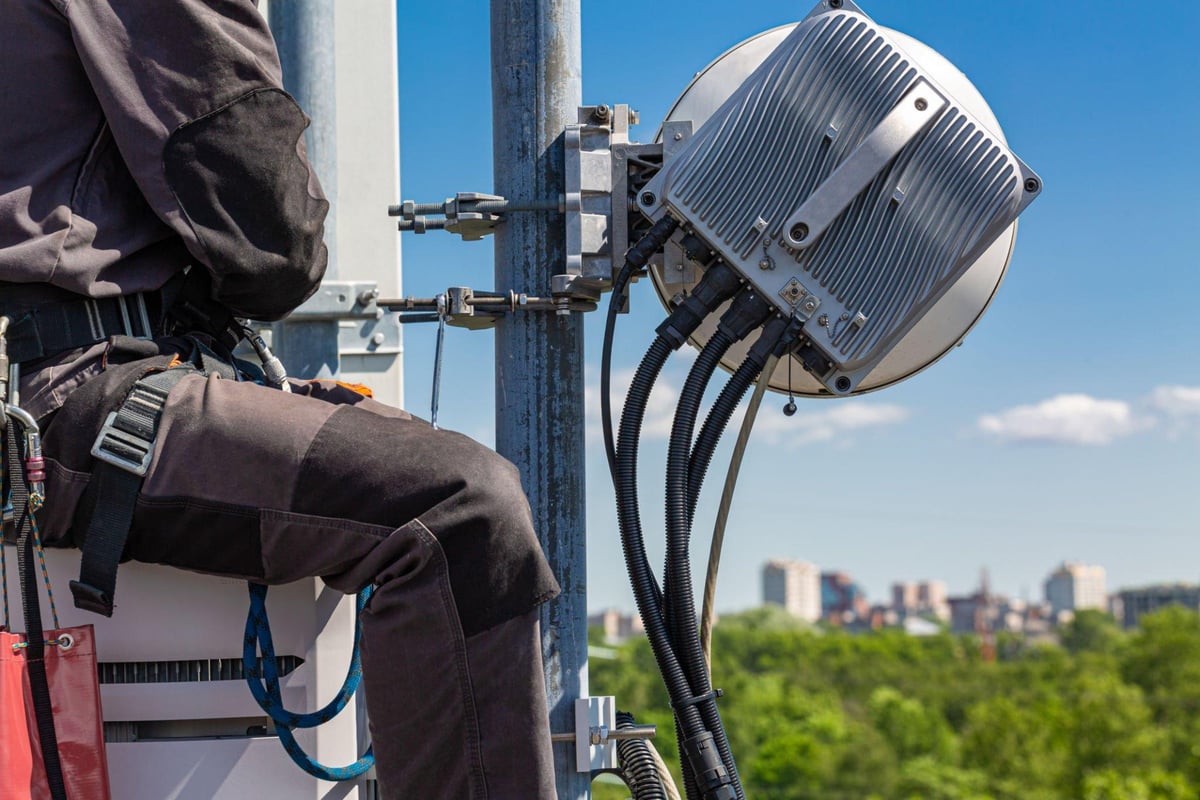
Financial aid (may be available)

No cost info

Financial aid (may be available)

Financial aid (may be available)
A career as a Tower Technician can be rewarding and fulfilling, especially for those who enjoy working outdoors and have an interest in telecommunications. This post, brought to you by Dreambound, the leading platform for students to find vocational training programs, aims to guide you through the process of becoming a Tower Technician in San Jose, providing key insights into the training requirements, certification process, and what to expect from a day-to-day class.

A Tower Technician, also known as a Tower Climber, is a professional responsible for the installation, maintenance, and repair of cellular towers. These individuals work at great heights, ensuring that our communication networks are functioning optimally. The job includes installing new equipment, performing routine maintenance, troubleshooting issues, and ensuring the safety of the tower.
To become a Tower Technician, specific training is required. This is where vocational training programs come in. These programs equip students with the necessary skills and knowledge to perform their duties effectively and safely. Training usually includes:
Basic Training: This covers the fundamentals of telecommunications, including how cellular networks operate, the different types of equipment used, and the basics of tower construction and maintenance.
Safety Training: Given the heights at which Tower Technicians work, safety is a key component of the training. This includes learning about fall protection, rescue procedures, and the correct use of safety equipment.
When choosing a Tower Technician class, there are several factors to consider:
Curriculum: Ensure the curriculum covers both the theoretical and practical aspects of the job, including telecommunications fundamentals and safety protocols.
Trainers: Experienced trainers provide valuable insights and practical knowledge, enriching the learning experience.
Hands-on Training: Practical training is crucial in this field. Classes should provide opportunities for students to practice their skills in real-world situations.
Day-to-day classes for Tower Technicians are a blend of classroom learning and practical training. Theoretical classes usually cover the basics of telecommunications, while practical sessions involve climbing towers, installing equipment, and learning safety procedures. Students are often required to demonstrate their skills in a controlled environment before progressing to real-world scenarios.
Upon completion of the training program, students are typically required to pass a certification examination. This exam tests their understanding of the coursework and their ability to perform the duties of a Tower Technician safely and effectively. Once the exam is passed, students earn their certification, attesting to their competence in the field.
After obtaining certification, the next step is finding a job. Numerous telecommunications companies hire Tower Technicians, including network providers and tower construction companies. It's advisable to prepare a professional resume highlighting your certification and any practical experience gained during training.
Once you become a certified Tower Technician, there are several other related classes you can take to expand your skills and improve your career prospects. Some of these include:
Advanced Safety Training: This goes beyond the basic safety training, covering more complex scenarios and rescue procedures.
Specialized Equipment Training: As technology evolves, so does the equipment used on cellular towers. Specialized training can keep you up-to-date with the latest tools and technologies.
Several other roles in the telecommunications industry might interest those who have completed Tower Technician training. These include:
Telecommunications Technician: These professionals install and maintain the equipment that makes up communication networks.
Network Field Engineer: They work on various network components and ensure that everything is functioning optimally. They also troubleshoot network problems and implement solutions.
Cell Site Engineer: They are responsible for the cell sites, which include the cellular tower, all the equipment on it, and the building that houses additional equipment.
Becoming a Tower Technician is just the beginning of a career in the telecommunications industry. With additional training and experience, you could advance to supervisory roles or even move into network design and planning. Continual learning and staying up-to-date with the latest industry trends and technologies are key to progression in this field.
A career as a Tower Technician offers many rewards, including the opportunity to work outdoors, a dynamic work environment, and the satisfaction of keeping our communication networks running. It does require specific training and certification, but with the right program, you can soon be on your way to an exciting and fulfilling career. Start your journey today by exploring related classes near you on Dreambound.
For more information on vocational training programs in California, check out these articles on how to become a HVAC technician and how to become a truck driver.
With Dreambound's comprehensive collection, understand the certification process in this field for different cities. Looking for info on other states? Our additional guides are here to help.
Exploring diverse professional options? Dreambound has comprehensive guides to assist you in making well-informed decisions. Take a look at these resources:
Dreambound's platform allows prospective students to find the right educational program for them through searching, filtering, and connecting with our extensive selection of career & technical education partners.
Dreambound has over 70 programs across healthcare, technology, business, and industrial trades. This includes programs such as Medical Billing, Cybersecurity, and welding.
Some of our schools offer financial aid for those who qualify. Many others offer payment plans, where you can pay the cost of class over time.
Yes, Dreambound offers many online programs. On Dreambound's search, you can filter by online, in-person, and hybrid (part online, part in-person).
Dreambound is completely free for you to use! We are supported by schools and organizations who pay to advertise on our website, so we can offer all of our career resources for free.